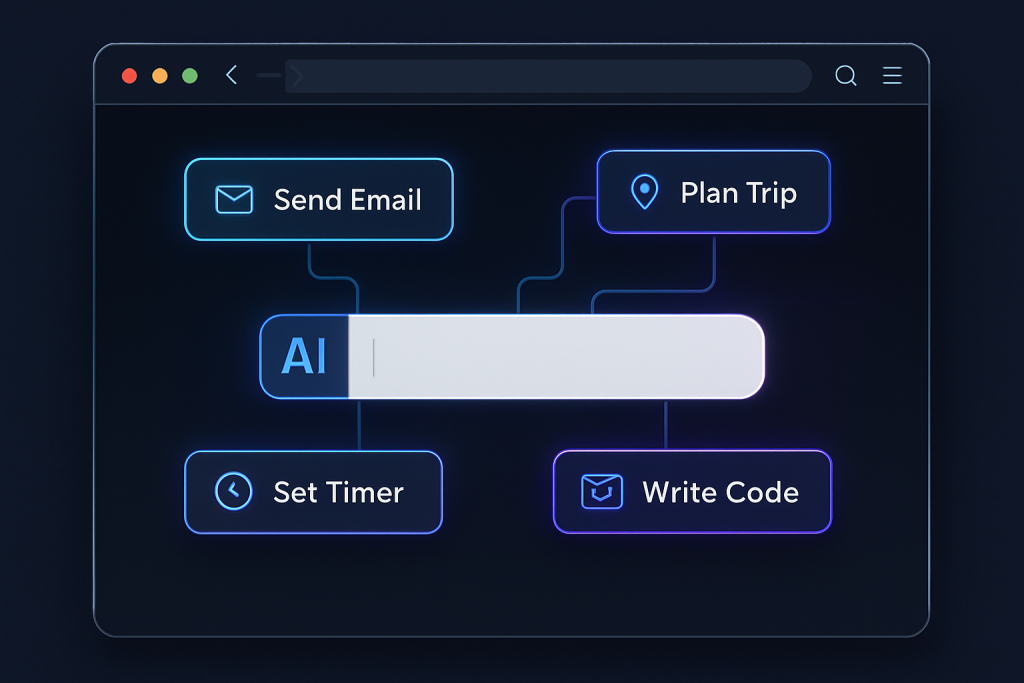Remember Clippy? Microsoft’s perpetually helpful, yet often intrusive, paperclip assistant from the early days of Windows? Well, consider Copilot Mode in the Edge browser Clippy’s great-great-grandchild, all grown up and (hopefully) a lot less annoying. On July 28th, 2025, Microsoft officially launched Copilot Mode, embedding AI directly into the browsing experience. And while Clippy just offered unsolicited advice, Copilot promises to actually do things.
The announcement, splashed across tech news sites like a fresh coat of paint on a familiar house, signals the next evolution in the browser wars. It’s not just about rendering HTML anymore; it’s about anticipating your needs, organizing your chaos, and, potentially, handling your online life for you. Think of it as having a super-efficient, AI-powered intern living inside your browser.
But before we dive into the specifics, let’s zoom out for a moment. The race to AI-ify everything is in full swing. Google’s been tinkering with “AI Mode” in Chrome, and startups like Perplexity AI and OpenAI are building entire browsers from the ground up with AI at their core. Microsoft, not wanting to be left in the digital dust, has doubled down on its partnership with OpenAI and is injecting AI into every corner of its ecosystem, from Office 365 to, now, the humble web browser.
So, what exactly does Copilot Mode do? At its heart, it aims to streamline the browsing experience. One of the key features is task assistance. Imagine you’re researching the best noise-canceling headphones. Instead of juggling multiple tabs, each with a different review or product listing, Copilot can organize those searches into topic-based queries, allowing you to easily compare information without the constant tab-switching dance. It’s like having a personal research assistant that doesn’t require coffee breaks (though I suspect it still needs electricity).
Then there’s the unified interface. Gone are the days of separate search bars and address bars. Copilot Mode consolidates chat, search, and navigation into a single input box. Type in your query, and Copilot figures out whether you’re searching for something, navigating to a specific website, or want to have a conversation. It’s a bold move, potentially simplifying the user experience, but also risks overwhelming users with too much functionality in a single place. It’s a bit like trying to turn your Swiss Army knife into a single, all-encompassing tool; brilliant if it works, unwieldy if it doesn’t.
And for those who prefer to talk to their devices, Copilot Mode also supports voice navigation. Hands-free browsing is no longer a futuristic fantasy; it’s a reality. Imagine cooking in the kitchen, needing a recipe, and simply asking Edge to find the best chocolate chip cookie recipe without having to touch your tablet with flour-covered hands. It’s a game-changer for accessibility and convenience.
But the real kicker, the feature that has everyone talking (and perhaps a little worried), is the promise of contextual actions in future updates. Microsoft plans to allow Copilot to access your browser context, including your history and credentials, to perform tasks like making bookings. Picture this: you’re chatting with Copilot about needing a flight to London. Copilot, knowing your travel preferences and having access to your saved credit card information, could automatically book the flight for you. It’s incredibly convenient, but also raises serious privacy concerns. Will users really be comfortable handing over that level of control to an AI?
Microsoft is trying to address those concerns by emphasizing user control. Copilot Mode is available for free on Windows and Mac PCs in Copilot markets for a limited time, and users have the option to disable the feature entirely through Edge settings. This opt-out approach is a smart move, allowing users to test the waters without feeling forced into using the AI. It’s like offering a free sample at the grocery store; you get to try before you buy, and you can always say no.
The launch of Copilot Mode has significant implications for the tech industry. It’s a clear signal that AI is no longer a separate entity but is becoming deeply integrated into the tools we use every day. This could lead to increased competition among browser vendors, with each company vying to offer the most intelligent and helpful AI assistant. It could also lead to a shift in how we interact with the web, moving away from manual searching and browsing towards a more conversational and automated experience.
But beyond the immediate impact on the tech industry, Copilot Mode raises broader ethical and societal questions. As AI becomes more integrated into our lives, we need to consider the potential risks. What happens if Copilot makes a mistake and books the wrong flight? Who is responsible if Copilot accesses sensitive information without our consent? These are not hypothetical scenarios; they are real possibilities that need to be addressed.
The philosophical implications are equally profound. Are we outsourcing our decision-making to AI? Are we becoming too reliant on technology to handle our daily tasks? These are questions that philosophers and ethicists have been grappling with for years, and the launch of Copilot Mode only makes them more urgent.
From a financial perspective, the success of Copilot Mode could have a significant impact on Microsoft’s bottom line. If users embrace the AI-powered browser, it could lead to increased market share for Edge and increased revenue from advertising and other services. However, if users are wary of the privacy implications, it could backfire and damage Microsoft’s reputation. It’s a high-stakes gamble, but one that Microsoft seems willing to take. After all, in the world of tech, you either disrupt or get disrupted. And Microsoft clearly wants to be the disruptor.
Ultimately, Copilot Mode is more than just a new feature in a web browser. It’s a glimpse into the future of computing, a future where AI is seamlessly integrated into our daily lives. Whether that future is utopian or dystopian remains to be seen. But one thing is clear: the AI revolution is here, and it’s coming to a browser near you.
Discover more from Just Buzz
Subscribe to get the latest posts sent to your email.


